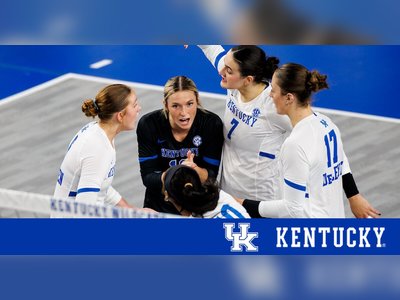Former Prince Prince Andrew Faces Possible U.S. Congressional Appearance Over Jeffrey Epstein Inquiry
U.S. lawmakers signal intent to call on Andrew to give evidence on his links to Epstein, though no enforceable subpoena can be served in the United Kingdom
British royal Prince Andrew, who relinquished his Duke of York title in mid-October, is now under intensified scrutiny by the U.S. legislature as part of a renewed investigation into his past connection with convicted sex offender Jeffrey Epstein.
The U.S. House Oversight Committee has publicly stated its interest in inviting him to testify about his involvement in the Epstein network, although as a British citizen he cannot be legally compelled to attend a U.S. hearing.
Representative Stephen Lynch, a senior Democrat on the Committee, confirmed that lawmakers “would be extremely interested in hearing from Prince Andrew regarding his involvement in all of this.” He added that while no formal subpoena has yet been issued, an invitation is expected.
The Committee has been poring over newly-released evidence, including court documents naming Andrew and communications that suggest he remained in contact with Epstein after the latter’s conviction.
At the same time, the U.S. Department of Justice and the Federal Bureau of Investigation maintain there is no “client list” of high-profile figures linked to Epstein, although the Committee is pursuing transparency and accountability.
Andrew, who settled a civil suit in the United States in February 2022 with his accuser Virginia Giuffre, has consistently denied any wrongdoing.
Giuffre, who alleged she was trafficked by Epstein and forced to have sex with the Prince when she was a minor, died by suicide in April 2025. Her posthumous memoir, published in October, presented further allegations and detailed her experiences within Epstein’s network.
On 17 October 2025, Andrew announced he would no longer use the Duke of York title or the associated honours, citing that “continued accusations about me distract from the work of His Majesty and the Royal Family.” The move followed growing pressure after leaks of emails, released documents, and renewed media attention.
As things stand, the U.S. committee may issue a formal invitation for Andrew to testify, but cannot enforce his presence on American soil.
Any decision to cooperate would be voluntary.
At the same time, in the United Kingdom the Metropolitan Police confirmed they are “aware of media reporting and are actively looking into the claims” that Andrew asked a bodyguard to dig up information on his accuser — an allegation he denies.
Whether Andrew will accept the U.S. invitation, travel to the United States, or provide written or remote testimony remains open.
The situation presents a significant moment of transatlantic legal and reputational risk, both for Andrew personally and for the wider royal institution.
The House Oversight Committee’s investigation continues to gather documents and witness statements.
While previous sweeps of the Epstein files by U.S. law enforcement concluded there was no evidence to initiate further criminal charges against “uncharged third parties,” U.S. legislators emphasise that their independent inquiry is ongoing and may yield new leads.
Andrew’s response to the invitation, and whether he opts to testify, will be closely watched.
The developments raise fundamental questions about accountability for former public figures and the interplay between U.K. royal status and U.S. investigatory mechanisms.
As the U.S. Congress presses forward, Prince Andrew must consider whether to engage — and how his decision will impact his future role, reputation, and legacy.
The U.S. House Oversight Committee has publicly stated its interest in inviting him to testify about his involvement in the Epstein network, although as a British citizen he cannot be legally compelled to attend a U.S. hearing.
Representative Stephen Lynch, a senior Democrat on the Committee, confirmed that lawmakers “would be extremely interested in hearing from Prince Andrew regarding his involvement in all of this.” He added that while no formal subpoena has yet been issued, an invitation is expected.
The Committee has been poring over newly-released evidence, including court documents naming Andrew and communications that suggest he remained in contact with Epstein after the latter’s conviction.
At the same time, the U.S. Department of Justice and the Federal Bureau of Investigation maintain there is no “client list” of high-profile figures linked to Epstein, although the Committee is pursuing transparency and accountability.
Andrew, who settled a civil suit in the United States in February 2022 with his accuser Virginia Giuffre, has consistently denied any wrongdoing.
Giuffre, who alleged she was trafficked by Epstein and forced to have sex with the Prince when she was a minor, died by suicide in April 2025. Her posthumous memoir, published in October, presented further allegations and detailed her experiences within Epstein’s network.
On 17 October 2025, Andrew announced he would no longer use the Duke of York title or the associated honours, citing that “continued accusations about me distract from the work of His Majesty and the Royal Family.” The move followed growing pressure after leaks of emails, released documents, and renewed media attention.
As things stand, the U.S. committee may issue a formal invitation for Andrew to testify, but cannot enforce his presence on American soil.
Any decision to cooperate would be voluntary.
At the same time, in the United Kingdom the Metropolitan Police confirmed they are “aware of media reporting and are actively looking into the claims” that Andrew asked a bodyguard to dig up information on his accuser — an allegation he denies.
Whether Andrew will accept the U.S. invitation, travel to the United States, or provide written or remote testimony remains open.
The situation presents a significant moment of transatlantic legal and reputational risk, both for Andrew personally and for the wider royal institution.
The House Oversight Committee’s investigation continues to gather documents and witness statements.
While previous sweeps of the Epstein files by U.S. law enforcement concluded there was no evidence to initiate further criminal charges against “uncharged third parties,” U.S. legislators emphasise that their independent inquiry is ongoing and may yield new leads.
Andrew’s response to the invitation, and whether he opts to testify, will be closely watched.
The developments raise fundamental questions about accountability for former public figures and the interplay between U.K. royal status and U.S. investigatory mechanisms.
As the U.S. Congress presses forward, Prince Andrew must consider whether to engage — and how his decision will impact his future role, reputation, and legacy.










